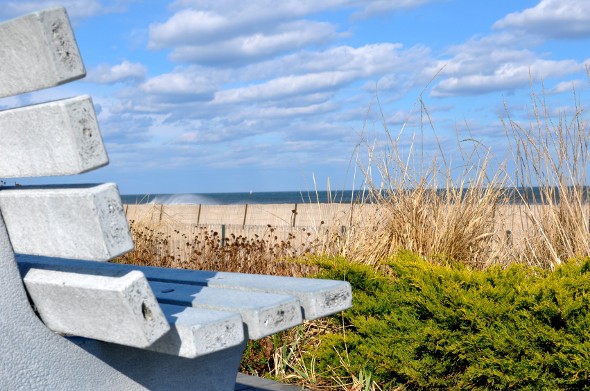New Jersey has some of the highest taxes in the U.S. It also has some very high home prices, driven in part by its proximity to New York City and its population density (the highest in the country). Despite this, the Garden State has a lot to offer: New Jersey’s economy is consistently strong and its schools are among the best in the Northeast. There are many other factors that go into its cost of living calculations, though.
If you’re looking to rent or buy in New Jersey, a financial advisor can help you put together a financial plan to do so.
Housing Costs in New Jersey
New Jersey is a notoriously expensive state to live in. It’s home to two of America’s wealthiest counties, Hunterdon County and Somerset County, and they’re not the only New Jersey locales with high home prices.
According to NeighborhoodScout, the median home value in New Jersey is $466,281. In certain cities, this number can get even higher. Jersey City carries a $576,704 median home value. Princeton ousts it with a median home value of $1,189,440. The high home prices in the Garden State may mean you need a mortgage to finance your home. Check out our New Jersey mortgage calculator to see what your monthly payments could look like.
In New Jersey five largest cities, there are significantly more renters than homeowners. As a result, New Jersey rents are well above average. According to March 2023 data from Apartment List, median rent for a one-bedroom apartment in Jersey City is $2,113. On the other hand, a one-bedroom in Hoboken is $3,084. With the national one bedroom median being $1,343, that’s a difference of $770 and $1,741 for both cities, respectively.
For a comparison, the table below compares New Jersey home values and rents for the five biggest cities in 2023. Data is from Neighborhood Scout.
Home Value vs. Rent in New Jersey’s 5 Largest Cities
| City | Median Home Value | Average Market Monthly Rent | Homeownership Rate |
| Newark | $369,747 | $2,033 | 22.4% |
| Jersey City | $576,704 | $2,441 | 29.3% |
| Paterson | $329,267 | $2,160 | 25.6% |
| Elizabeth | $403,815 | $2,113 | 25.5% |
| Toms River | $430,883 | $2,923 | 79% |
Utility Costs in New Jersey
While housing costs are high whether you rent or buy, there is some good financial news in the Garden State. According to the March 2023 Save on Energy Electricity Bill Report, New Jersey consumes an average of 687 kWh per month. They pay an average monthly energy bill of $114.87. That’s $23.70 cheaper than the U.S. average of $138.57.
Prices can be higher in big cities, though. According to Numbeo.com, the average monthly utility bill for a 915 square-foot apartment in Newark, NJ is $178.27. In Trenton, it’s $127,50.
Food Costs in New Jersey

The MIT Living Wage Calculator shows that an adult with no children in New Jersey requires a living wage of $18.71 per hour, or $38,916 annually (based on 40 hours per week for 52 weeks per year), before taxes. Of that annual income, food expenses account for $4,559, or 11.7%, which doesn’t allow many luxuries.
Food expenses vary within New Jersey. Based on 2022 data from Numbeo.com, the average cost of a gallon of milk and a dozen eggs in Newark is $4.15 and $4.42, respectively. In Jersey City, those prices remain high at $4.88 and $3.25. Compare these to the national average prices for a gallon of milk and a dozen eggs, at $3.88 and $4.11, respectively.
Transportation Costs in New Jersey
Many of New Jersey’s residents commute by public transportation. In fact, after New York City, Jersey City, Hoboken and Newark have some of the highest proportions of public transportation users in the country. According to the Census Bureau, the average commute time in New Jersey is 28.6 minutes in 2021. That’s just over 10 minutes longer than the average commute in the U.S., which is 27.6 minutes, as of 2019.
If you don’t take public transportation, you’ll need to pay for a car. According to GasBuddy data from March 2023, the average price of a gallon of gas in the Garden State is $3.21. When it comes to car insurance, Insure.com’s March 2023 report ranks New Jersey in the upper middle of the pack across the nation with an average annual premium of $1,901.
Taxes in New Jersey
New Jersey taxes are among the highest in the nation. The top tax rate in New Jersey’s progressive state tax system is 10.75% for those over $1 million. That may sound high, but it’s still lower than the top income tax rates in California and Hawaii.
Property taxes in the Garden State are the highest in the nation, however, with an average effective property tax rate of 2.26%. This is significantly higher than the national average of 0.99%.
New Jersey Miscellaneous Cost of Living Facts

New Jersey is home to Princeton University, which consistently ranks as one of America’s best colleges. Aside from Princeton, New Jersey residents have lots of options for higher education. These include Stevens Institute of Technology, Rutgers, The College of New Jersey and New Jersey Institute of Technology.
Many of New Jersey’s attractions are free. It won’t cost you a thing to stroll along the Atlantic City boardwalk, admire the Victorian houses of Cape May or check out the Princeton University campus and the excellent free art museum there. You can also visit the Liberty Science Center for $29.99 or the Grounds for Sculpture art park for $28.
Financial Tips During a Move
- Financial advisors can help with long-term financial planning, making them valuable during a move to a new state. Finding a financial advisor doesn’t have to be hard. SmartAsset’s free tool matches you with up to three vetted financial advisors who serve your area, and you can interview your advisor matches at no cost to decide which one is right for you. If you’re ready to find an advisor who can help you achieve your financial goals, get started now.
- A new home could ignite a full reevaluation of your financial life. If you’re open to a new bank, check out your options in New Jersey, like OceanFirst Bank, Cross River Bank, Haven Savings Bank, First Commerce Bank and The Bank of Princeton.
Photo credit: ©iStock.com/jyeater, ©iStock.com/eyegelb, ©iStock.com/TheaDesign
